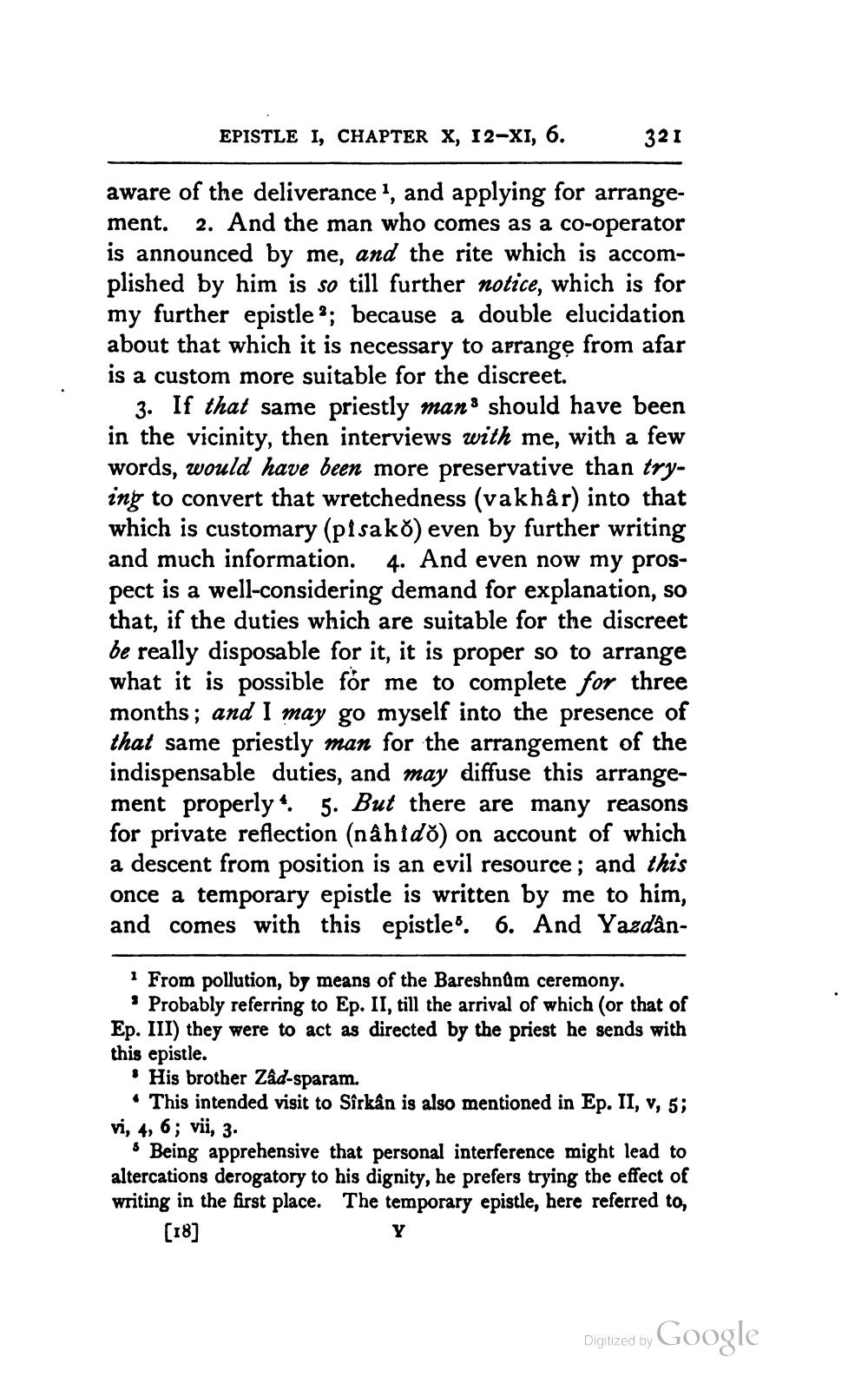________________
EPISTLE I, CHAPTER X, 12-XI, 6.
321
aware of the deliverance 1, and applying for arrangement. 2. And the man who comes as a co-operator is announced by me, and the rite which is accomplished by him is so till further notice, which is for my further epistle %; because a double elucidation about that which it is necessary to arrange from afar is a custom more suitable for the discreet.
3. If that same priestly mans should have been in the vicinity, then interviews with me, with a few words, would have been more preservative than trying to convert that wretchedness (vakhâr) into that which is customary (pisako) even by further writing and much information. 4. And even now my prospect is a well-considering demand for explanation, so that, if the duties which are suitable for the discreet be really disposable for it, it is proper so to arrange what it is possible for me to complete for three months; and I may go myself into the presence of that same priestly man for the arrangement of the indispensable duties, and may diffuse this arrangement properly 4. 5. But there are many reasons for private reflection (nâhido) on account of which a descent from position is an evil resource; and this once a temporary epistle is written by me to him, and comes with this epistle". 6. And Yazdân
From pollution, by means of the BareshnQm ceremony. * Probably referring to Ep. II, till the arrival of which (or that of Ep. III) they were to act as directed by the priest he sends with this epistle.
. His brother Zad-sparam.
• This intended visit to Sîrkân is also mentioned in Ep. II, v, 5; vi, 4, 6; vii, 3.
Being apprehensive that personal interference might lead to altercations derogatory to his dignity, he prefers trying the effect of writing in the first place. The temporary epistle, here referred to,
(18]
Digitized by Google




